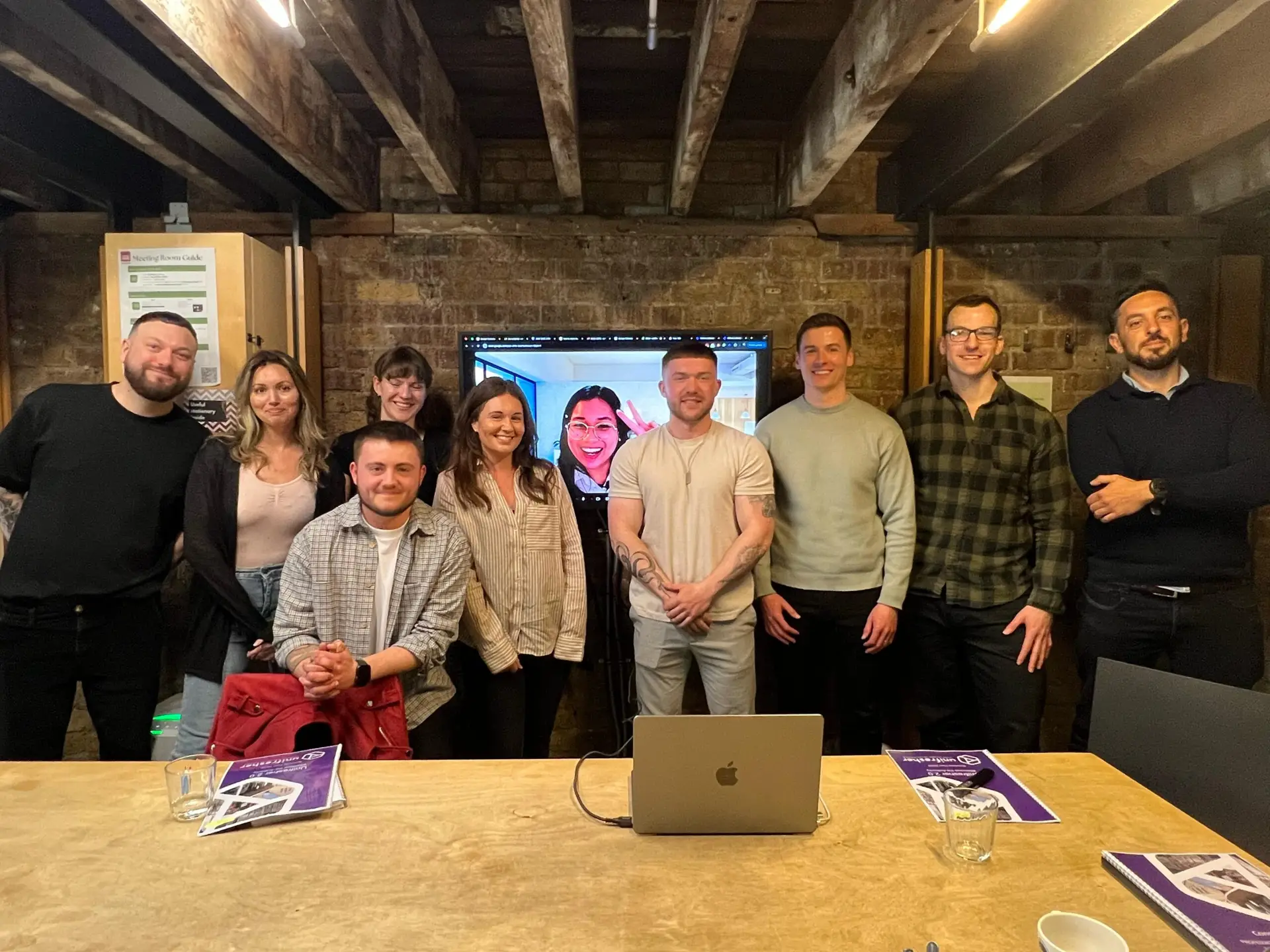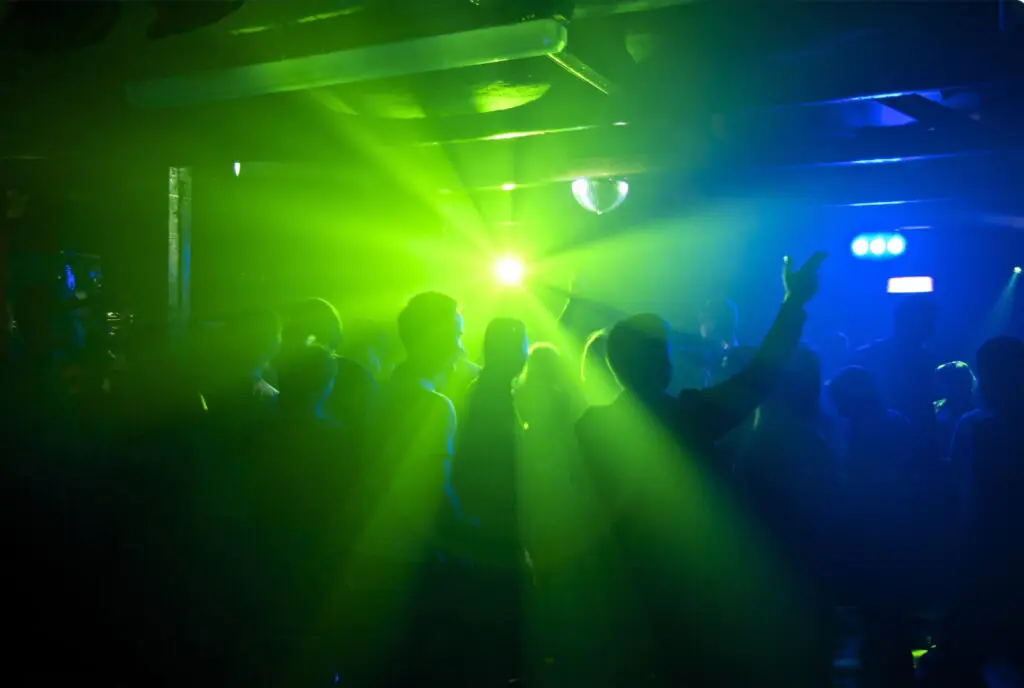King’s College London is one of the oldest universities in the UK, founded in 1829. It is also a member of the Russell Group, and often ranks among the top UK universities, particularly in humanities, law, and health-related subjects. With its central London campuses and strong academic reputation, King’s is a dream choice for many potential students.
As a current student at King’s, I have had time to experience both the reality of the university itself and what it is like living and studying in central London. In this piece, I will share what I think King’s does well, what I wish I had known before applying, and my thoughts on the common assumptions about attending university in London. Whether you are weighing up your UCAS choices or simply curious about student life in central London, here is what I have learned so far.
Why I chose King’s College London:
I was initially drawn to King’s because of its academic reputation and central London location. I had always imagined myself living in London one day so when it came to applying for university, the idea of studying in my dream city felt more exciting than anywhere else.
Location:
I did apply to another London university, but it was further out and did not have quite the same attraction. The Strand campus, in particular, stood out to me. No other university open day left the same impression; every other city I visited just did not feel like the right fit.
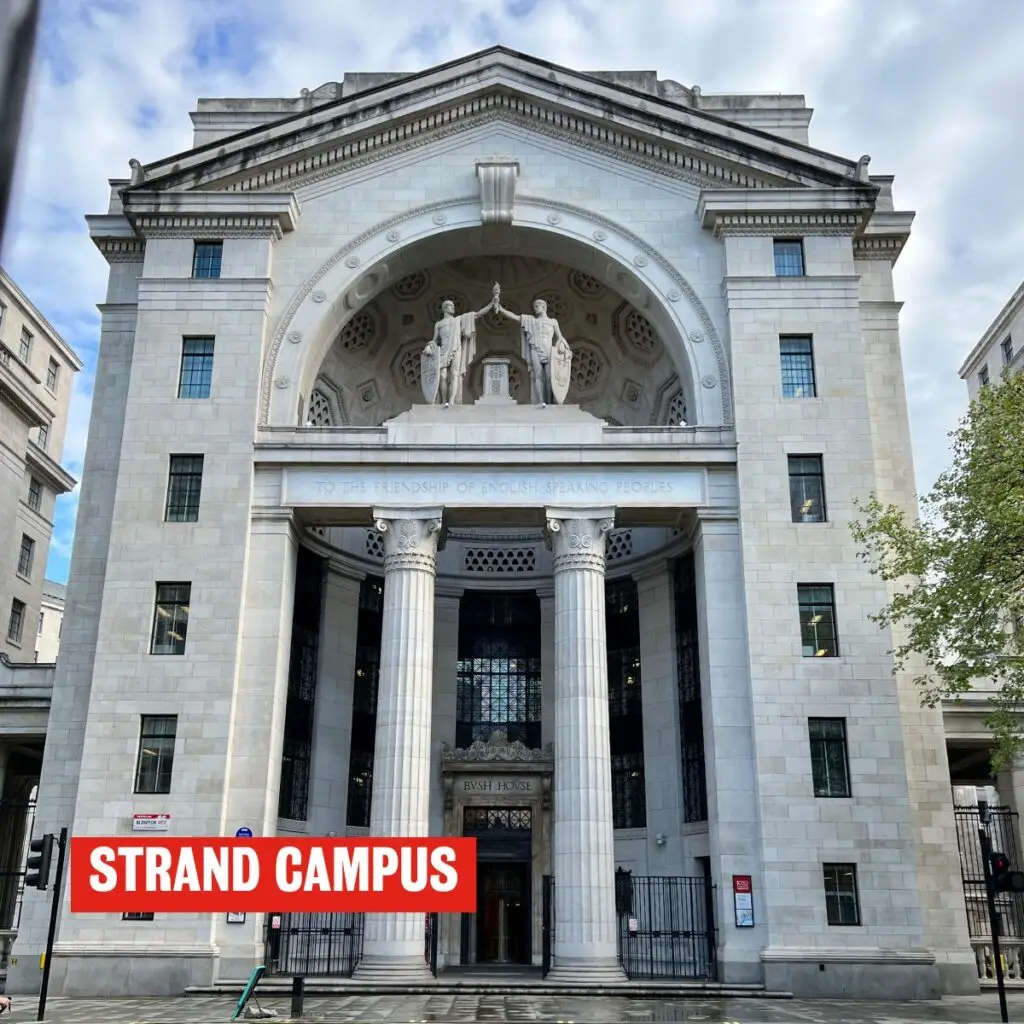
Coming from Newcastle, I was already familiar with what a typical university city had to offer: affordable nightlife, cosy campuses, and a student-centric social scene. I knew that if I was going to leave home, I did not want to go somewhere that felt so much like what I already knew. London offered me something completely new: bigger, busier, and far more
expensive, but with far more opportunities socially and academically.
My Course:
Another factor that narrowed down my options was the course I wished to study. Comparative Literature with Film Studies is quite niche – only around 20 UK universities offer it – so that at once made my decision more focused. What sealed it was the realisation that London was not just a backdrop to my studies, but something that actively feeds into them. There are film festivals and premieres happening constantly, and one night after a seminar, I saw Timothée Chalamet cycling down the Southbank on a Lime bike for a premiere. London offers things that do not happen in most university towns.
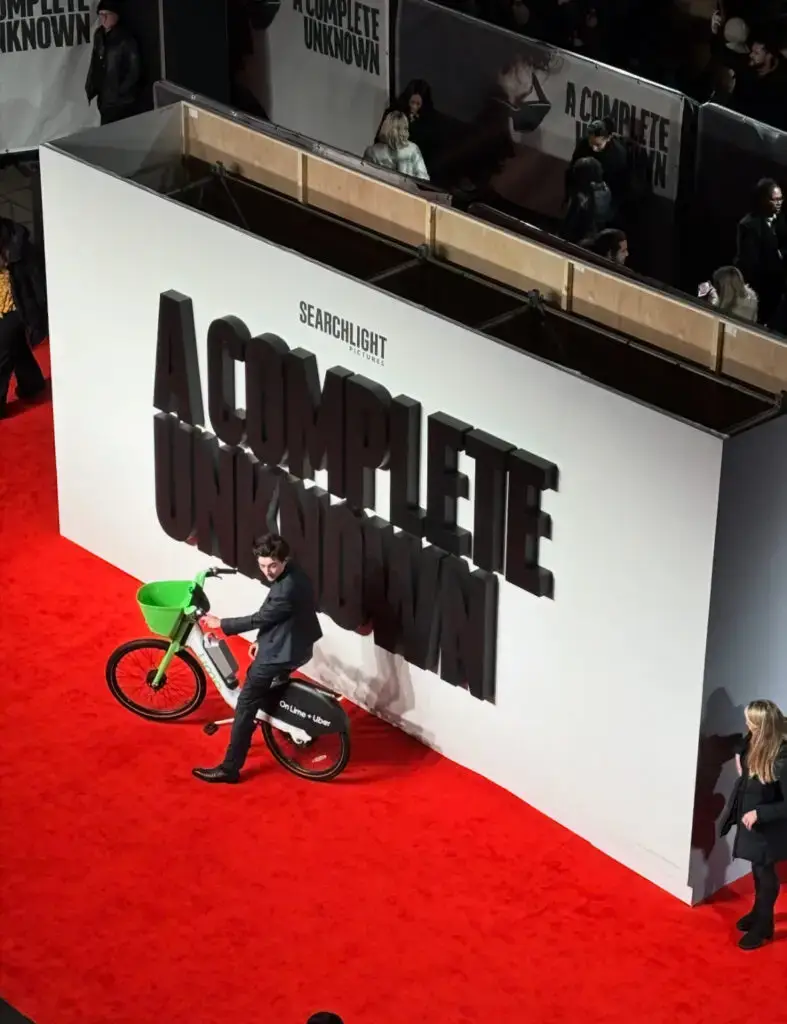
Studying Comparative Literature here also means being surrounded by a hugely diverse student body. In my first year, I have met course-mates from all over the world, and that variety has aided the way we engage with literature and culture in seminars and lectures.
Looking back, I was nervous about moving so far from home to such a fast-paced and expensive city. But I have never regretted the decision, and I only wish I had more confidence in it from the start.
The Academic Experience:
My home department – Languages, Literatures and Cultures (LLC) – is part of the wider Arts and Humanities faculty at King’s. As one, small department in a huge university, LLC feels quite close-knit.
From the very beginning, they made an effort to build a sense of community amongst both students and staff. During Freshers’ Week, the department hosted a range of events designed to help students meet each other and their lecturers. That first week had quite a large impact on my first year – I met most of my coursemates at those events, and helped take the anxiety out of meeting lots of new people in my first seminars as I already knew who I would be attending them with, as well as who would be teaching me.
The department continues to host regular events throughout the year, like career talks and creative competitions, including essay prizes and poetry awards. There is a real encouragement to engage beyond the classroom, which makes it feel like you are at university to grow as a thinker and writer, rather than solely get a degree.
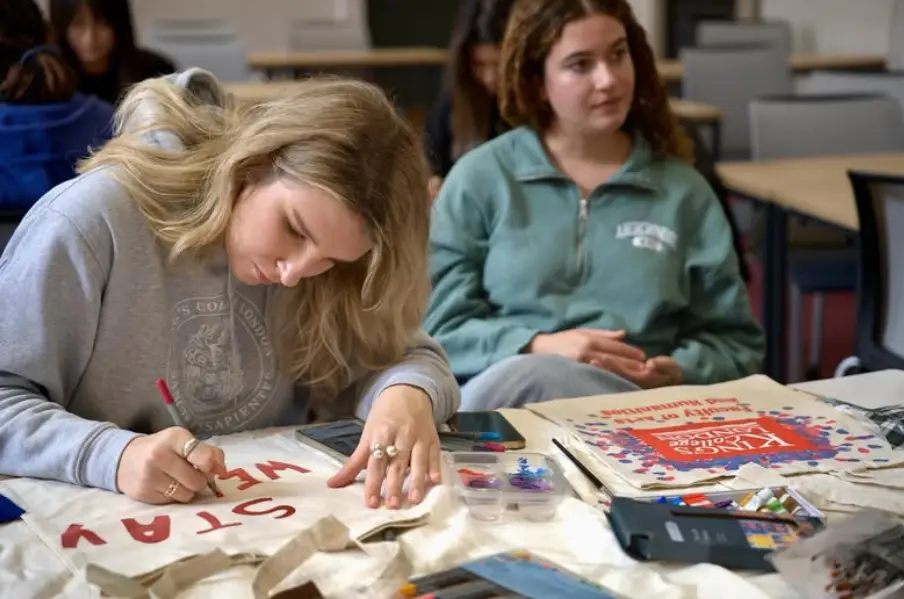
Teaching:
In terms of teaching, I have been really impressed. There is a stereotype around UK universities about lecturers who just read off a PowerPoint, which I have never experienced on my course. PowerPoints are obviously used, but always as a springboard for discussion. Lecturers and seminar leaders are clearly passionate about their research and subject areas, which makes discussions much more engaging. It is easier to care about a topic when your lecturer clearly does too.
Academic Support:
The academic support has also been strong. I have always found lecturers willing to meet and talk through any issues, whether it is about an assessment or just struggling with a reading. The admin staff within the LLC department are also active and responsive – emails are answered quickly, and things tend to get sorted without too much back-and-forth.
One of the more challenging aspects of my degree has been the encouragement to read texts in their original language. As someone who only speaks English fluently, this has pushed me out of my comfort zone. But there are support systems in place: translation resources, reading aids, and the option to take a language module alongside your degree. While it is difficult, it is also one of the more unique and rewarding parts of the course.
Assessment feedback is clear and constructive. Comments are uploaded directly to KEATS (King’s learning platform), and most lecturers offer the chance to meet one-on-one to go through your work. This has helped me approach essays with more confidence, knowing what I am doing well and what I need to improve on.
Overall, my academic experience at King’s has been far more dynamic and supportive than I expected. There is a good balance between independent learning and structured guidance, and most importantly, I feel like I am being taught by people who genuinely want us to enjoy what we are studying.
Student Life:
One of the greatest misconceptions about studying in London is that you will not have a social life. This could not be further from the truth!
While nights out can definitely be more expensive in smaller student cities, it does not mean you will be stuck in your room every weekend. You just must be a bit more strategic – choosing the right venues, looking out for early bird tickets, and being smart with your budget. London offers an incredible variety when it comes to nightlife: from cosy pub quiz nights to basement raves, rooftop bars, and iconic clubs like Ministry of Sound, there is genuinely something for everyone. My top tip is to plan ahead – tickets are usually cheaper a week or two in advance, and there is always someone looking to buy last-minute if your plans change.
That said, nightlife is only one part of social life – and honestly, not the most important. Because King’s campuses are spread across central London, and many students live in private accommodation or commute, it is easy to worry that it might be harder to find your people. But in my experience, it has not been a problem. During Fresher’s Week, there are
plenty of induction events, which makes it much easier to meet people on your course and settle in.
Societies and Student Events:
Societies are another way to meet like-minded people. I joined the DJ Society, and it ended up being a great decision socially. They run regular events, including collaborations with other London unis, which really helped broaden my circle beyond just King’s. I have always loved live music, and it was a relief to find people with similar interests, especially since I had not necessarily found that connection within my course or accommodation.
There is also a powerful sense of community at King’s in a more low-key way. It is not unusual to end up at the Vault after a lecture, or out at DC on a Wednesday night with a mix of course-mates, society friends, and people you met through friends of friends. What makes London student life so unique is that you are not locked in a particular social scene. Whether you are into clubbing, cafés, art galleries, or house parties there is room for it all.
Campus Vibes and Locations:
One of the best things about my first year at King’s was how close my accommodation was to campus. I stayed in Stamford Street Apartments, which is a popular choice for students based at the Waterloo and Strand campuses. I was only a 10-15 minute walk from my lectures – a commute that meant crossing Waterloo Bridge each morning and evening, which offered some of the most stunning views of London.
Most of my classes took place in the King’s Building (right beside Somerset House), Bush House, and occasionally the Virginia Woolf Building. Strand Campus has a unique energy: it is busy, central, and packed with character. There are several King’s college cafés and study spots dotted around the buildings. My personal favourite is Chapters, which is cosy, affordable, and ideal for grabbing a coffee between lectures. But because you are in the heart of central London, you are also surrounded by independent cafés, shops, and easy access to places like Covent Garden and Soho. The location means you are never far from something interesting: whether it is a gallery opening, a lunchtime gig, or a just a good sandwich.
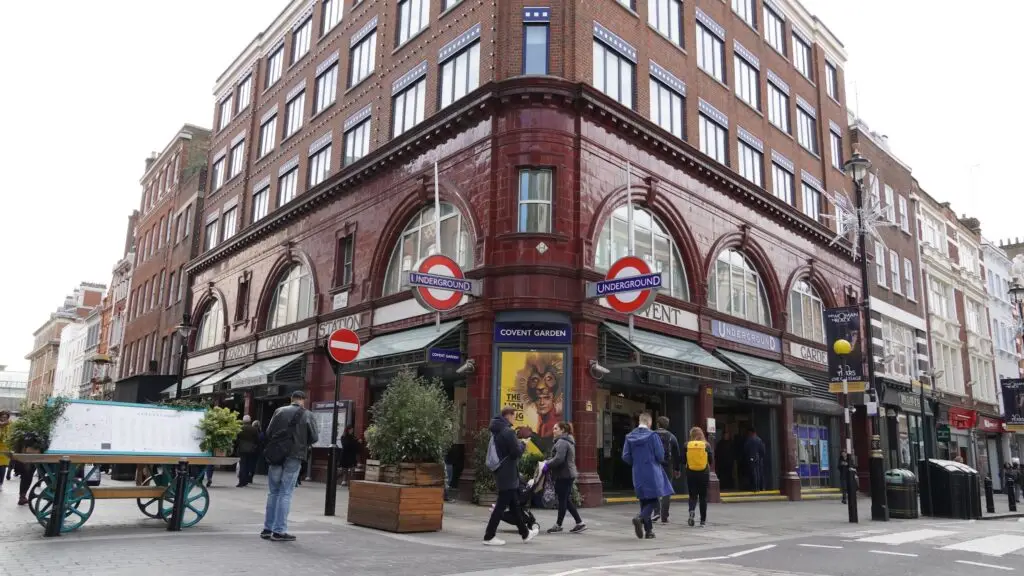
Accessibility:
Being based on the Strand also makes King’s a very accessible university for commuters. You are right next to major train stations like Waterloo and Charing Cross, and the central location makes it easy to meet up with friends, explore the city, or run errands between classes.
Living across from the Waterloo Campus was convenient for another reason: the Franklin-Wilkins building, which houses a library I often used to meet and study with friends. While it did not stock many of the books I needed for my course, it was a quiet and reliable space.
The real highlight, though, is the Maughan Library, which is arguably the most well-known of all the King’s libraries. It is a short walk from Strand and houses an impressive collection across a range of disciplines – not to mention a huge DVD archive, which is a dream for film students like me.
The Maughan is not only practical but beautiful too. Its historic architecture and iconic round reading room make it a favourite among students – though, during exam season, finding a seat in that room can be extremely difficult. That said, the other study areas throughout the building are just as atmospheric and comfortable. Whether you are looking
for silence, a group study zone, or a sport to work solo for a few hours, there is a space that fits the vibe.
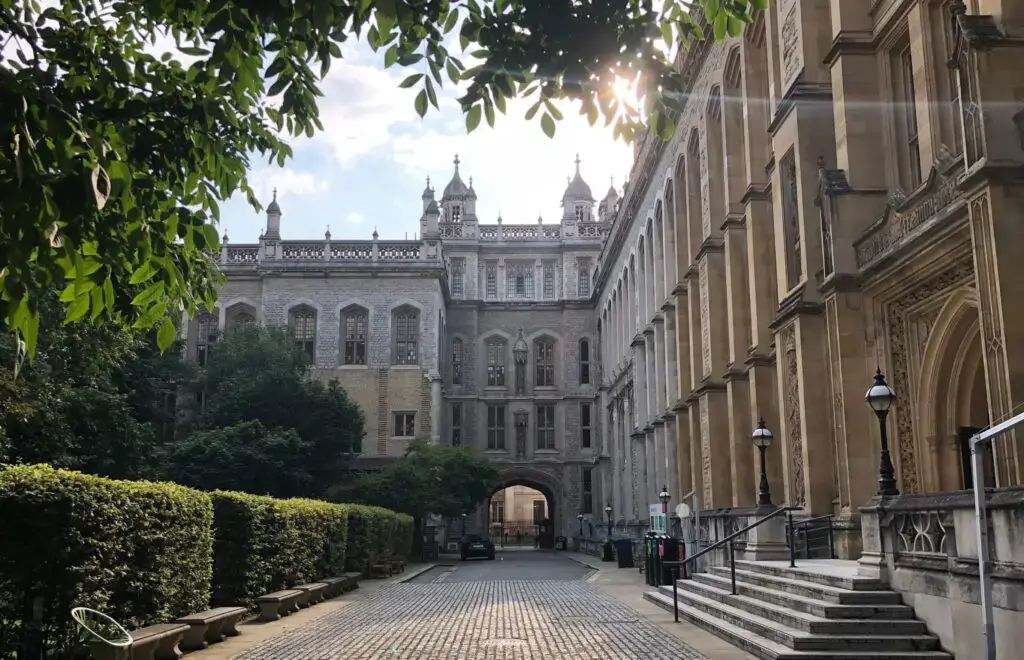
In short, King’s does not feel like a campus-based university in the traditional sense, but that is what makes it feel so exciting. Your campus is the city. You are not limited to one enclosed space; instead, you are studying right in the middle of a global capital.
Living in London as a Student:
Living in London is something I have always dreamed of, and university gave me the perfect excuse to finally make that move. That said, I was fully aware from the start that London would be expensive and that I would need to budget more carefully than I might have in a smaller student town.
Budgeting:
Unlike campus-based universities in quieter cities, there is not a massive Tesco or Aldi nearby offering student deals in bulk. Instead, I lived in Stamford Street Apartments, which meant I had close access to a Sainsbury’s Local, Tesco Express, and an M&S Food hall. These shops are not the cheapest in the country, but with a bit of meal planning, it is
manageable. I got into the habit of rotating between stores depending on what I needed – Sainsbury’s best for general bits, and M&S had the best reductions right before closing.
The real trick to keeping food costs low is meal planning. I tried to buy only what I knew I would use that week – no random impulse buys. That said, the joy of living in London is the sheer number of food options available. From cheap Chinatown eats to food trucks on the South Bank, there’s no shortage of places to grab a bite without breaking the bank. Many restaurants and cafés offer student discounts or weekday set menus, you just have to keep an eye out.
Other essential money-savers include discount schemes. Get yourself a Tesco Clubcard and an Oyster card. Although I don’t have one myself, I’d definitely recommend it to anyone who will be commuting. I was lucky that I could walk to all of my classes from my accommodation, but I have friends who commute to campus or travel across the city for
sports practice – and without an Oyster or student travel card, it gets pricey fast. The tube is convenient, but buses are a cheaper alternative and honestly, a much nicer way to see London if you are not in a rush.
Affordable Nightlife:
Then there’s nightlife, which is where your budget can start to spiral if you are not careful. London clubs aren’t always student-friendly when it comes to drink prices or entry fees. Places like Ministry of Sound do offer discounted student nights (usually Tuesdays), but it is not like other university towns where every bar has a £2 shot deal. Still, there are smaller venues and local pubs scattered across the city with much more reasonable prices, and plenty of pre-drinks happening in flats before nights out can make your nightlife a lot cheaper. My advice is to plan ahead: buy tickets in advance and scope out the drink deals.
Ultimately, living in London as a student is expensive. But it is manageable. With a bit of strategy, some savvy spending, and an open mind about where to shop and go out, it is more than do-able. And honestly, being in London makes it all feel worth it.
Final Thoughts – Is King’s Worth it?
Looking back on my first year at King’s, I can confidently say that choosing to study here was the right decision for me. It is not a typical university experience in the traditional sense; London is not a bubble the way some campus-based universities are. But what you do get is the excitement of being in one of the most vibrant, culturally rich cities in the
world, with access to people, places, and opportunities that you just would not get elsewhere.
Overall, I have found King’s to be supportive, well-resourced, and full of passionate people who really care about what they are teaching and studying. Being able to walk across Waterloo Bridge to class, bump into a film premiere after a screening, or study in a library that feels like something out a film – those are the moments that remind me I am
lucky to study here.
If you are considering applying to King’s, I would tell you to reflect on what kind of university experience you are looking for. If you want independence, inspiration, and the chance to study in the heart of a bustling city, then King’s might just be for you.





